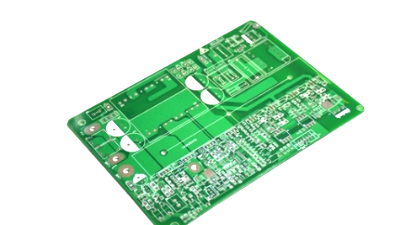The selection of your electronic components supplier directly affects your project's quality standards alongside cost efficiency and the completion schedule. Dependable suppliers are essential for smooth operations and enhanced performance whether you're creating a prototype or manufacturing a final product at scale. How can you find a dependable vendor when the market has so many options?
This blog is all about guiding you from the work environment of the electronic component suppliers
1. Check Supplier Certifications and Compliance
A supplier's certification status should be the primary aspect to examine during your evaluation process. Suppliers who maintain trustworthiness usually adhere to industry benchmarks including ISO 9001 standards for quality management. Supplier certifications demonstrate their strict processes for sourcing components and delivery which protects against counterfeit components and inferior quality parts. International marketing of your end product requires strict adherence to these standards.
2. Review Product Range and Inventory
Customers always go with reputable and trusted suppliers to receive their high-quality electronic products or parts, such as resistors, capacitors, ICs and microcontrollers. A reliable distributor must have real-time inventory updates, showcasing their latest parts availability. The process prevents procurement delays and maintains the production schedule's continuity.
Inquire about their capability to locate and procure components that are difficult to find or no longer in production. Suppliers who maintain strong industry connections or have partnerships with authorized distributors enable you to obtain rare parts without losing out on quality.
3. Assess Delivery Capabilities and Lead Times
In any hardware project, time is critical. Trustworthy suppliers deliver precise lead time estimates and provide express shipping solutions as required. Assess how suppliers manage their shipping procedures together with their item handling practices and delivery tracking capabilities. All project managers aim to prevent component delivery delays which upset project schedules and lead to higher expenses.
Certain suppliers deliver products through just-in-time (JIT) services which aid large-scale manufacturing operations by minimizing storage space usage and lowering inventory expenses.
4. Evaluate Customer Support and Responsiveness
A supplier's customer service quality indicates their overall reliability. Can you get in touch with them easily when you need technical assistance? How quickly can you expect updates on your order status from them? If a stock of a part is finished, do they have alternate option.
Effective communication becomes essential when managing complicated projects. Select suppliers who display responsiveness and knowledge while offering full support during the procurement process.
5. Look for Positive Reviews and Industry Reputation
Research supplier reviews and ratings prior to your final selection. Go through the engineering communities or forums and other platforms to review their opinions and gather more ideas. Successful transaction records alongside enduring client relationships and positive client feedback serve as strong signs of reliability.
6. Understand Return and Warranty Policies
Nobody appreciates receiving defective or wrong parts although problems may arise. Your supplier should have a well-defined return policy and provide warranties for defective products. The presence of transparent policies demonstrates that a company supports the quality of its products.
The success of your project depends heavily on the reliability of your electronic component suppliers or electronic parts suppliers. Building a partnership that supports your current and future goals requires attention to certifications, inventory transparency, timely deliveries, and strong customer service.





Comments